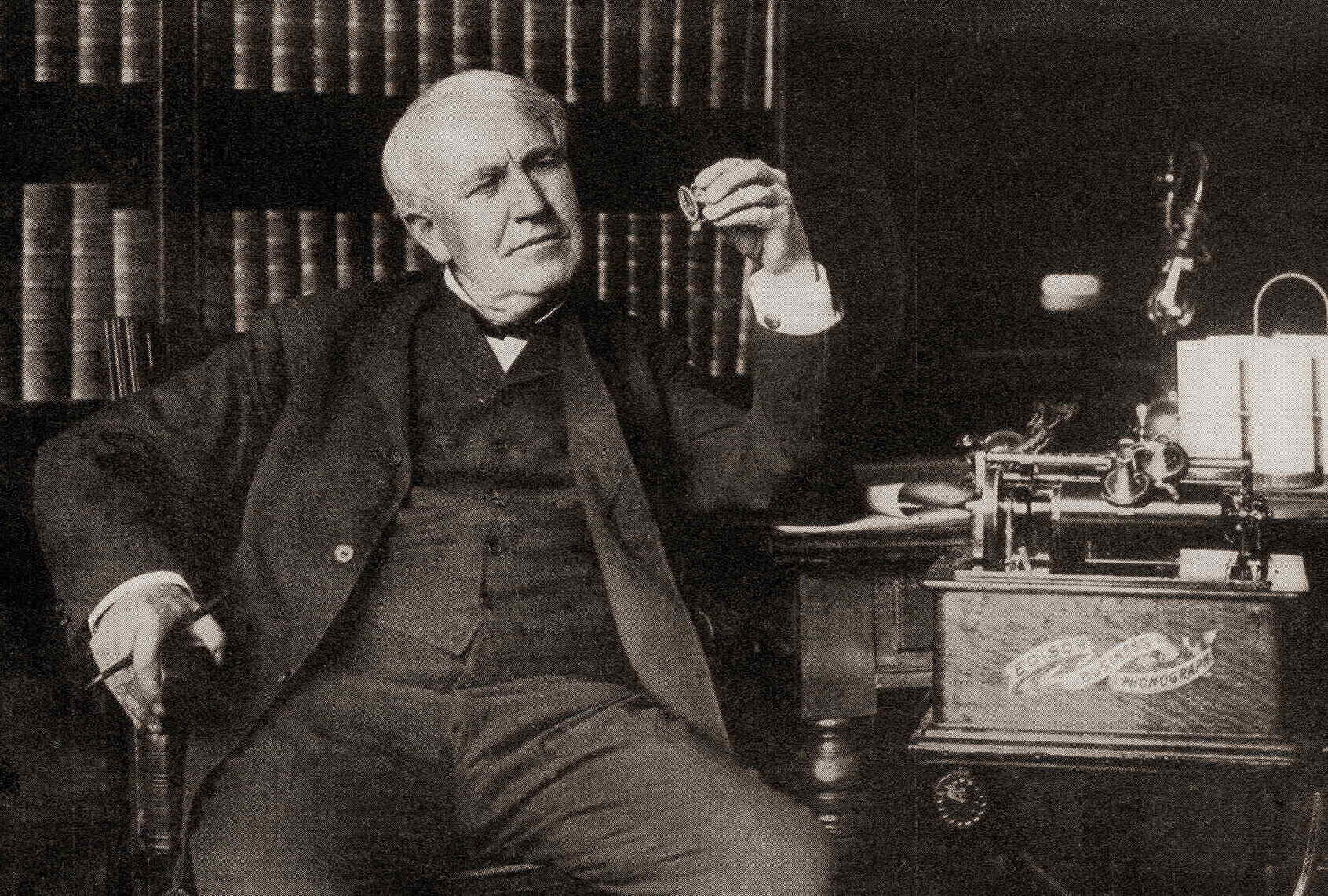
Ever wondered how our lives got so lit up, quite literally? Let's tip our hats to Thomas Edison, the mastermind behind inventions that sparked revolutions in how we live, work, and play. Did you know Edison held over 1,000 patents? Yep, you read that right! From the phonograph to the electric light bulb, his innovations have left an indelible mark on the world. But there's more to this inventor than just his well-known creations. Ready to illuminate your mind with some electrifying facts about Edison? Buckle up, because we're about to shed some light on the lesser-known aspects of this brilliant inventor's life. Trust me, it's going to be an enlightening ride!
Key Takeaways:
- Thomas Edison, America's renowned inventor, created the phonograph, electric light bulb, and motion picture camera. His work ethic and vision continue to inspire innovation and perseverance in the modern world.
- Edison's practical approach to invention and establishment of the first industrial research lab set the foundation for modern innovation. His legacy lives on, inspiring inventors and entrepreneurs with his belief in hard work and perseverance.
Who Was Thomas Edison?
Thomas Edison, often hailed as America's greatest inventor, was a force of nature in the world of innovation. Born on February 11, 1847, in Milan, Ohio, Edison's inventions have significantly shaped the modern world. His relentless pursuit of discovery and improvement led to the creation of devices that transformed daily life, including the phonograph, the motion picture camera, and, most famously, the electric light bulb. Edison's work ethic and vision set him apart, making him a household name and an enduring symbol of ingenuity.
Edison's Early Life and Education
-
Edison was mostly home-schooled by his mother, a former schoolteacher, after a short stint in formal schooling. His insatiable curiosity and self-driven education were evident from an early age, as he developed a deep love for reading and learning.
-
At age 12, Edison began selling newspapers on trains, showing early entrepreneurial skills. He even created his own small newspaper, The Grand Trunk Herald, which he printed in a makeshift train car office.
The Invention of the Phonograph
-
In 1877, Edison astonished the world by inventing the phonograph, the first device capable of recording and reproducing sound. This invention earned him the nickname "The Wizard of Menlo Park."
-
The phonograph was initially intended as a dictation machine, but its entertainment value quickly became apparent, laying the groundwork for the music industry.
Edison and the Electric Light Bulb
-
Contrary to popular belief, Edison did not invent the first electric light bulb. Instead, he improved upon existing designs to create the first commercially viable incandescent light bulb in 1879.
-
His development of a practical electric light bulb involved creating a durable filament material and an effective vacuum inside the bulb to prevent the filament from oxidizing and burning out quickly.
Edison's Impact on Modern Electricity
-
Edison's work didn't stop with the light bulb. He envisioned and created the first electrical power distribution system, making electric light and power accessible to the masses.
-
In 1882, Edison launched the Pearl Street Station in New York City, the first commercial central power plant in the United States. This innovation marked the beginning of the electrical age.
The Motion Picture Camera
-
Edison also played a pivotal role in the development of the motion picture camera. His invention, the Kinetoscope, introduced in 1891, was one of the first devices to show moving pictures.
-
While Edison did not invent cinema, his contributions significantly advanced the technology, leading to the development of the film industry.
Edison's Later Years and Legacy
-
Over his lifetime, Edison held 1,093 US patents for his inventions, a testament to his prolific nature as an inventor.
-
Edison's last major invention was the kinetophone, or talking motion picture, in 1913, which combined his interests in sound recording and motion pictures.
-
Thomas Edison passed away on October 18, 1931, in West Orange, New Jersey. His legacy lives on, not just in his inventions, but in the spirit of innovation and perseverance he embodied.
Edison's Personal Life
-
Edison was married twice and had six children. His family life, though often overshadowed by his professional achievements, was important to him.
-
Known for his tireless work ethic, Edison reportedly slept only four hours a night, relying on short naps to recharge.
Edison's Controversies
-
Despite his genius, Edison's career was not without controversy. His fierce competition with Nikola Tesla over the electrical current system—AC (Alternating Current) versus DC (Direct Current)—is well-documented.
-
Edison's involvement in public demonstrations of the dangers of AC electricity, including the electrocution of animals, has been criticized as unethical.
Edison's Influence on Modern Innovation
-
Edison's approach to invention, focusing on practicality and commercial viability, set a precedent for modern innovation.
-
His establishment of the first industrial research lab in Menlo Park, New Jersey, laid the foundation for the collaborative approach to research and development that drives technological advancement today.
-
Edison's legacy is not just in his inventions but in his approach to problem-solving and innovation. His belief in hard work, perseverance, and the importance of failure in the process of discovery continues to inspire inventors and entrepreneurs around the globe.
A Final Spark on Edison's Legacy
Thomas Edison's life and work have left an indelible mark on the world. From the phonograph to the electric light bulb, his inventions have illuminated and transformed our lives in countless ways. Edison's relentless pursuit of innovation, coupled with his unique approach to problem-solving, serves as a powerful reminder of the impact one individual can have on society. His legacy is not just in the devices and technologies he created but in the spirit of curiosity and perseverance he embodied. As we move forward, embracing new challenges and opportunities, let's carry forward Edison's legacy of creativity and innovation. Edison's story teaches us that with hard work, dedication, and an unyielding spirit of inquiry, the possibilities are endless. Let's keep the light of innovation burning bright, inspired by Edison's remarkable journey and contributions.
Frequently Asked Questions
Was this page helpful?
Our commitment to delivering trustworthy and engaging content is at the heart of what we do. Each fact on our site is contributed by real users like you, bringing a wealth of diverse insights and information. To ensure the highest standards of accuracy and reliability, our dedicated editors meticulously review each submission. This process guarantees that the facts we share are not only fascinating but also credible. Trust in our commitment to quality and authenticity as you explore and learn with us.


